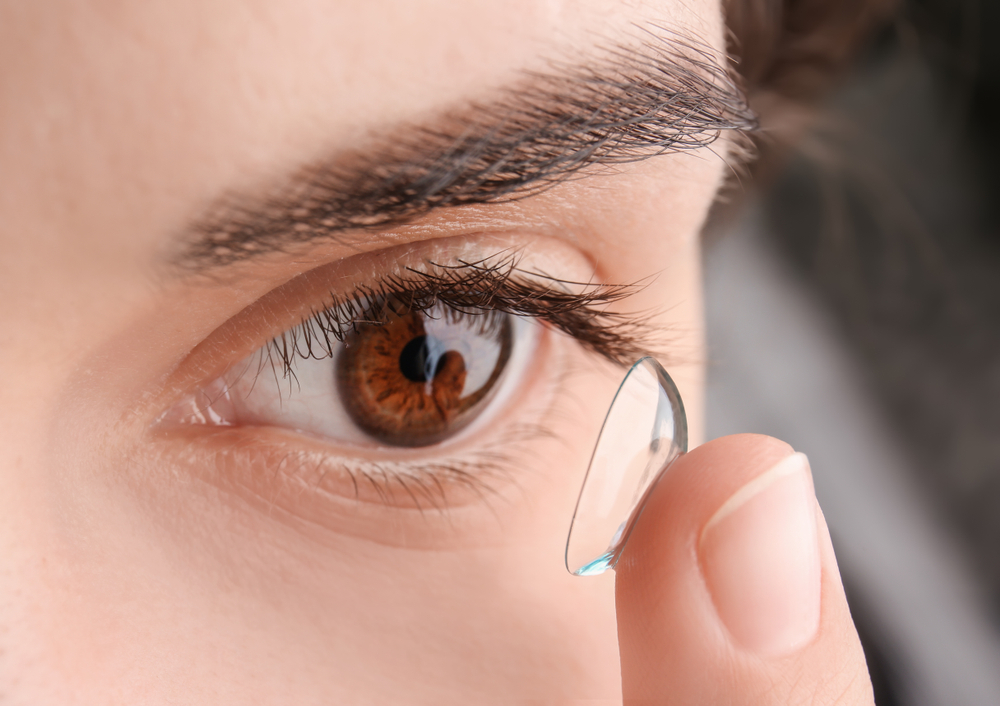
Wearing contact lenses can be a convenient alternative to glasses, but when they don’t fit properly, they can cause discomfort and vision problems. At Drs. Farkas, Kassalow, Resnick & Associates, we understand how frustrating ill-fitting contact lenses can be and are here to help you understand why this might be happening and what you can do about it.
The Importance of a Contact Lens Exam and Fitting
A contact lens exam is crucial for ensuring the health of your eyes and the proper fit of your lenses. Unlike a standard eye exam, a contact lens exam involves specific measurements of your cornea and an evaluation of your tear film to ensure that lenses will fit comfortably and provide optimal vision. Without a proper exam, lenses may cause discomfort, irritation, or even damage to your eyes. Additionally, your eye doctor will assess your overall eye health and ensure that your prescription is up-to-date, helping to prevent complications and maintain clear vision. Regular contact lens exams are essential to preserve both comfort and eye health while wearing lenses.
Changes in Your Eyes
As we age, our eyes naturally change in shape and size. This can affect how well your contact lenses fit. Even minor changes in the curvature of your cornea or the size of your eye can result in an improper fit, leading to discomfort or blurred vision.
Incorrect Prescription
One of the most common reasons for ill-fitting contact lenses is an outdated or incorrect prescription. If your prescription has changed or was inaccurate to begin with, your lenses may not sit properly on your eyes, causing them to move around or create pressure points. Make sure to have your prescription checked regularly and update it as needed.
Lens Material and Type
Not all contact lenses are created equal. Some materials are more breathable and comfortable for certain eye types, while others may cause dryness or irritation. Additionally, there are different types of contact lenses—such as soft lenses, rigid gas permeable lenses, and hybrid lenses—each designed for specific vision needs. The wrong type for your eyes can lead to poor fit and discomfort.
Dry Eyes
If you suffer from dry eyes, contact lenses can exacerbate the problem. Dry eyes can cause lenses to stick or shift, making them feel uncomfortable. Special lenses designed for people with dry eyes, such as silicone hydrogel lenses or daily disposables, can help alleviate this issue. Additionally, using artificial tears or other treatments for dry eyes can improve your overall lens-wearing experience.
Improper Lens Care
Poor hygiene and improper lens care can lead to discomfort and fit issues. If lenses aren’t cleaned or stored correctly, protein deposits, dust, and bacteria can accumulate, causing irritation or infection. Be sure to follow your eye care provider’s instructions on cleaning and storing your lenses to maintain their integrity and fit.
Underlying Eye Conditions
Certain eye conditions, such as astigmatism, keratoconus, or dry eye syndrome, can make it more difficult to achieve a proper contact lens fit. If you’ve been diagnosed with any of these conditions, your optometrist may recommend specialty contact lenses, such as toric lenses for astigmatism or scleral lenses for keratoconus, which are designed to provide a better fit for irregular corneas.
Schedule Your Contact Lens Exam with Drs. Farkas, Kassalow, Resnick & Associates Today
If your contact lenses are causing you discomfort or seem ill-fitting, schedule an appointment with your optometrist. At Drs. Farkas, Kassalow, Resnick & Associates, we specialize in contact lens fittings, including specialty lenses for complex eye conditions. We will assess your eyes, update your prescription if necessary, and recommend the best lens type for your individual needs.
For more information or to schedule a contact lens exam and fitting, contact Drs. Farkas, Kassalow, Resnick & Associates. Visit our office in Manhattan, New York, or call (212) 355-5145 to book an appointment today.









